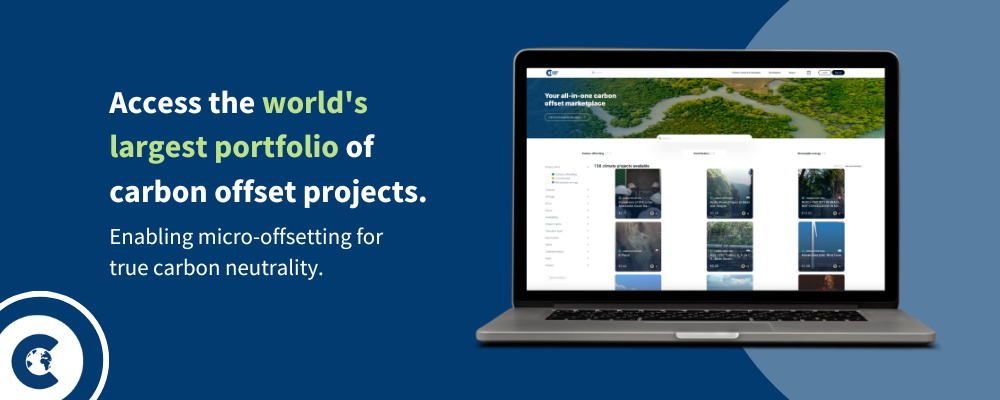IETA recongnizes carbon credits as a valuable tool, particularly for the private sector, to bridge the gap between current emission levels and ambitious net-zero targets. Their new guidelines aim to ensure high-integrity use of carbon credits.
The International Emissions Trading Association (IETA) is a key player in the fight against climate change. They advocate for the responsible use of carbon credits as a tool for businesses to achieve net-zero emissions. Their newly released “Guidelines for High-Integrity Use of Carbon Credits” provide a practical framework for companies to integrate carbon credits into their decarbonization strategies, emphasizing transparency, prioritizing emissions reduction activities, and ensuring the use of high-quality credits that contribute to achieving the ambitious goals of the Paris Agreement. The fight against climate change demands urgent action. Why? Because the window to limit global warming to 1.5°C is rapidly closing, necessitating a drastic reduction in greenhouse gas emissions.

The Importance of Carbon Credits
IETA recognizes carbon credits as a valuable tool, particularly for the private sector, to bridge the gap between current emission levels and ambitious net-zero targets. However, recent modeling indicates a high risk of companies falling short of their near and long-term climate goals.
The IETA Guidelines address this challenge by outlining a framework for integrating carbon credits into a comprehensive decarbonization strategy.
This framework prioritizes:
Rigorous Action: Companies are urged to quantify and disclose their emissions, establish ambitious net-zero pathways, and use high-quality carbon credits to achieve these targets.
Transparency: Full disclosure of emissions and carbon credit usage is crucial for accountability and building trust in the market.
Prioritization: Investments in emissions reduction and removal activities remain paramount. Carbon credits should be used strategically to compensate for residual emissions after all other mitigation efforts have been exhausted.
Key Features of the Guidelines
The IETA Guidelines provide a roadmap for companies seeking to utilize carbon credits effectively. Here are some key features:
Alignment with the Paris Agreement: Companies must demonstrate their support for the Paris Agreement goals, underscoring the urgency of climate action.
Emission Quantification and Disclosure: Accurate measurement and transparent reporting of Scope 1, 2, and 3 emissions are essential for establishing a baseline and tracking progress.
Net Zero Pathway and Targets: Developing a clear roadmap towards net-zero emissions with ambitious near-term targets is crucial for driving immediate action.
Mitigation Hierarchy: The guidelines emphasize prioritizing emission avoidance and reduction strategies before resorting to carbon credits.
High-Quality Carbon Credits: Companies are encouraged to use credits certified by reputable standards to ensure environmental integrity and deliver real emission reductions.
Transparent Disclosure of Carbon Credits: Clear communication regarding the use of carbon credits fosters trust and ensures accountability.
ICROA and the changing nature of the Voluntary Carbon Market
The IETA Guidelines recognize the ever-changing nature of the carbon market and promote continuous improvement by welcoming suggestions for additional safeguards beyond transparent reporting. They emphasize the critical role of several factors. Companies can leverage ICROA (Independent Carbon Removal and Offset Alliance) accredited service providers to source high-quality carbon credits and ensure adherence to best practices. The guidelines welcome the introduction of robust compliance schemes with clear guidelines on incorporating carbon credits into emission reduction strategies. Ultimately, IETA envisions a globally linked greenhouse gas (GHG) market that fosters fair competition, strong price signals, and cost-effective emission reductions.
By integrating these principles into their decarbonization strategies, companies can leverage the power of carbon credits to achieve net-zero goals and contribute significantly to meeting the Paris Agreement objectives. The time for inaction is over. Businesses must embrace carbon credits strategically and transparently to play their part in securing a sustainable future for all.
SBTi announcement regarding scope 3 emissions
As organizations strive to achieve net zero emissions within their operations, carbon offsetting is emerging as a key strategy. This trend is further emphasized by the recent SBTi announcement regarding upcoming changes in Scope 3 emissions guidelines. Companies are navigating a dynamic sustainability landscape where reducing their own emissions remains paramount. However, offsetting unavoidable residual emissions through verified projects like renewable energy initiatives or forest conservation provides a crucial tool for achieving net zero. This allows organizations to contribute to global emission reduction efforts beyond their immediate control, demonstrating their commitment to a sustainable future.

Simplify your sustainability journey with a climate action partner
ClimateTrade is the leading climate-tech company for decarbonization and carbon offsetting. From cost-effective carbon footprint calculators to the world’s most accessible marketplace with the largest supply for carbon offsetting and donations, and the first Climate SaaS API for carbon neutrality, ClimateTrade offers transparent and traceable solutions for companies seeking to advance their sustainability commitments.
We’re excited to also introduce our new offsetting strategy as a service, designed to empower businesses in their pursuit of net-zero emissions. As companies navigate the evolving landscape of sustainability, particularly concerning upcoming changes in Scope 3 emissions guidelines set by the SBTi (Science Based Targets initiative), our initiative stands ready to provide expert guidance and support.








